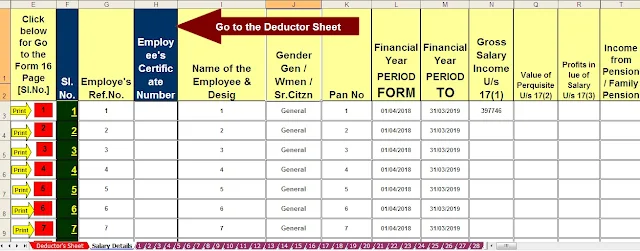Between time Budget 2019-20 and the Finance Bill 2019 have been postponed in Parliament. The Income Tax Slab rates have been kept unaltered by the Finance Minister for the Financial Year 2019-20 (Assessment Year 2020-2021).
One of the Budget Tax proposition that has drawn everyone's consideration is – 'Zero assessment risk or No pay charge for Rs 5 Lakhs assessable salary.'
According to the Finance Bill 2019, the edge furthest reaches of duty discount u/s 87A has been amended to Rs 12,500 for FY 2019-20. This duty discount is pertinent if a person's (Resident Individuals including Senior Citizens) assessable salary is not exactly or equivalent to Rs 5 Lakhs (as it were).
Anyway, what is the significance of a Tax Rebate?
What is a Tax Rebate?
Duty discount is a discount on duties when the obligation on expense is not exactly the assessment paid or subject to pay, by the individual is alluded to as Income Tax Rebate.
Pay Tax Rebate Vs Tax Exemption Vs Tax Deduction
• Income Tax Exemptions are permitted to be guaranteed from a particular wellspring of income(ex: Salary) and not from the Gross Total Income. Ex: HRA
• Income Tax Deductions are permitted to be asserted under each Head and furthermore from Gross Total Income. The citizen can guarantee derivations in the event that he/she brings about indicated consumption or make determined ventures under different areas of the IT Act. Models: Investments u/s 80c (or) Health Insurance premium u/s 80D.
• Whereas, Income Tax Rebate is permitted to be guaranteed from the absolute assessment payable. Along these lines, the exceptions and conclusions are permitted to be guaranteed from the Income and Rebate is permitted from the assessment payable.
Reexamined Tax Rebate Limit u/s 87A
The Tax discount of Rs 2,500 for people with a salary of up to Rs 3.5 Lakh had been proposed in Budget 2017-18 and the equivalent has proceeded for FY 2018-19/AY 2019-20 also.
The discount us/87A has now been modified to Rs 12,500 for FY 2019-20/AY 2020-21. This implies on the off chance that the complete assessment payable is lower than Rs 12,500, at that point that sum will be the discount under segment 87A. This discount is connected to the all-out expense before including the Education Cess (4%).
• Only Individual Assesses winning net assessable salary up to Rs 5 lakhs are qualified to appreciate charge refund u/s 87A.
• For Example: Suppose your yearly pay comes to Rs 6,50,000 and you guarantee Rs 1,50,000 u/s 80C. The all-out total compensation for your situation comes to Rs 5,00,000 which makes you qualified to guarantee charge discount of Rs 12,500.
• The measure of expense discount u/s 87A is confined to limit of Rs 12,500. In the event that the figured expense payable is not as much as Rs 12,500, state Rs 10,000 the duty refund will be constrained to that lower sum, for example, Rs 10,000 as it were.
• The Tax Assesse is first required to include all livelihoods for example pay, house salary, capital additions, business or calling pay and pay from different sources and after that deduct the qualified expense reasoning sums u/s 80C to 80U and under area 24(b) (Home Loan Interest) to concoct the net assessable pay.
• If the above net assessable salary happens to be not as much as Rs 5 lakhs then the expense refund of Rs 12,500 comes into the image and ought to be deducted from the determined all-out pay charge payable.




